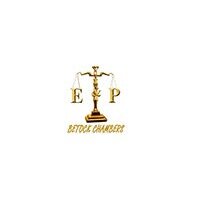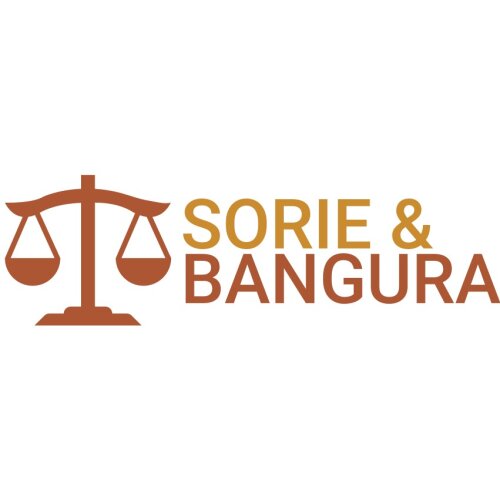Best Employer Lawyers in Sierra Leone
Share your needs with us, get contacted by law firms.
Free. Takes 2 min.
Or refine your search by selecting a city:
List of the best lawyers in Sierra Leone
About Employer Law in Sierra Leone
Employer law in Sierra Leone governs the relationship between employers and employees in the workplace. It covers various aspects such as hiring, firing, working conditions, wages, benefits, and employee rights.
Why You May Need a Lawyer
You may need a lawyer in Employer in Sierra Leone for various reasons, including disputes over employment contracts, unfair termination, discrimination, harassment, wage disputes, and other legal issues that may arise in the workplace.
Local Laws Overview
Key aspects of local laws relevant to Employer in Sierra Leone include the Labour Act of 1971, which sets out the rights and responsibilities of employers and employees, and the National Social Security and Insurance Trust Act, which governs social security benefits for workers.
Frequently Asked Questions
Q: Can my employer terminate my employment without cause?
A: In Sierra Leone, employers can terminate employment without cause, but they must provide notice or compensation in lieu of notice, as stipulated in the Labour Act.
Q: What are my rights as an employee in Sierra Leone?
A: Employees in Sierra Leone have rights to fair wages, safe working conditions, social security benefits, and protection against discrimination and harassment in the workplace.
Q: How can I resolve a dispute with my employer?
A: Disputes with employers can be resolved through negotiation, mediation, arbitration, or legal action, depending on the nature of the conflict.
Q: Can I file a complaint against my employer for unfair treatment?
A: Yes, you can file a complaint with the Ministry of Labour and Social Security or seek legal advice to address unfair treatment by your employer.
Q: Are there specific laws regarding working hours and overtime in Sierra Leone?
A: The Labour Act specifies working hours, overtime rates, and rest periods for employees in Sierra Leone to ensure fair treatment and compliance with labor laws.
Q: What is the process for filing a claim for unfair dismissal?
A: To file a claim for unfair dismissal, you must follow the procedures outlined in the Labour Act, including filing a complaint with the Labour Department and seeking legal assistance if necessary.
Q: Are there legal requirements for employee benefits in Sierra Leone?
A: Employers in Sierra Leone are required to provide certain benefits to employees, such as social security contributions, paid leave, and health insurance, as mandated by the law.
Q: How can I ensure my employer complies with labor laws in Sierra Leone?
A: You can familiarize yourself with the Labour Act, report any violations to the relevant authorities, seek legal advice if needed, and join a trade union for added support and protection.
Q: Can I negotiate terms of employment with my employer in Sierra Leone?
A: Yes, you can negotiate terms of employment with your employer, such as salary, benefits, working hours, and job responsibilities, to reach a mutually agreeable agreement.
Q: What legal resources are available to employees in Sierra Leone?
A: Employees in Sierra Leone can seek legal advice from private law firms, the Legal Aid Board, or the Sierra Leone Bar Association for assistance with employment-related issues.
Additional Resources
For more information on employer law in Sierra Leone, you can visit the Ministry of Labour and Social Security website or contact the National Social Security and Insurance Trust for guidance on social security benefits and contributions.
Next Steps
If you require legal assistance in Employer in Sierra Leone, consider contacting a qualified employment lawyer who can provide expert advice and representation to protect your rights and interests in the workplace.
Lawzana helps you find the best lawyers and law firms in Sierra Leone through a curated and pre-screened list of qualified legal professionals. Our platform offers rankings and detailed profiles of attorneys and law firms, allowing you to compare based on practice areas, including Employer, experience, and client feedback.
Each profile includes a description of the firm's areas of practice, client reviews, team members and partners, year of establishment, spoken languages, office locations, contact information, social media presence, and any published articles or resources. Most firms on our platform speak English and are experienced in both local and international legal matters.
Get a quote from top-rated law firms in Sierra Leone — quickly, securely, and without unnecessary hassle.
Disclaimer:
The information provided on this page is for general informational purposes only and does not constitute legal advice. While we strive to ensure the accuracy and relevance of the content, legal information may change over time, and interpretations of the law can vary. You should always consult with a qualified legal professional for advice specific to your situation.
We disclaim all liability for actions taken or not taken based on the content of this page. If you believe any information is incorrect or outdated, please contact us, and we will review and update it where appropriate.
Browse employer law firms by city in Sierra Leone
Refine your search by selecting a city.












